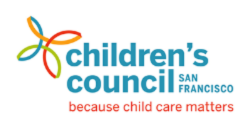Topics
Choosing Child CareFamilies' RightsFamily & Community EngagementFinancial AssistanceLicensing & SafetyParenting & Child DevelopmentProvider ResourcesResource & ReferralSpecial NeedsThe Individuals with Disabilities Education Act (IDEA) guarantees special education services to children with special needs. IDEA is a federal and state program. There are 13 eligible disability categories:
- Specific learning disability
- Speech or language impairment
- Autism
- Mental retardation
- Emotional disturbance
- Orthopedic impairment
- Hard of hearing
- Deaf
- Deaf and blind
- Visual impairment
- Multiple disability
- Traumatic brain injury
- Other health impairment
There are two parts of IDEA:
Part B: For children age three to 21 years – called Special Education.
Part C: For children birth to three years – called Early Intervention Services.
IDEA Part B – Special Education
IDEA Part B serves children who are three to 21 years of age. The program provides services based on the student’s individual needs. The California Department of Education manages this program through local school districts and county school offices that work together in Special Education Local Plan Areas (SELPAs).
How it works:
- A child is referred to the local school district.
- For a child who is three years old to kindergarten:
- A child already in IDEA Part C will be connected to IDEA Part B.
- The family can refer their child to the local school district.
- For a student who is in kindergarten to 21 years old:
- Teachers, parents, school staff, or other service providers refer the student.
- For a child who is three years old to kindergarten:
- Schools try to meet the student’s special needs in the general education program.
- Schools are required to then evaluate if the student’s special needs interferes with their education. If so, they recommend special education services.
- If special education is recommended, a team creates an Individual Education Plan (IEP) for the student.
- The IEP includes the student’s goals, the services they will receive, progress measures and more.
- The team typically includes the student’s parents and general education teacher, a special education teacher, a school administrator, an evaluator, and the student (if appropriate).
- If needed, the student receives a Section 504 plan.
- A Section 504 plan is for individual needs outside instruction, such as where the child sits in the classroom or a wheelchair ramp.
IDEA Part C – Early Intervention
IDEA Part C serves children who are birth to three years of age. The program provides services based on the child’s individual needs. The California Department of Developmental Services manages the program through Early Start.
How it works
- A family is referred to a local Early Start office, called a Regional Center.
- A medical provider, a child care provider, or a parent can refer a child to Early Start.
- Within 45 days of the referral, the Regional Center will decide if the child qualifies for services.
- The Regional Center creates an Individual Family Service Plan (IFSP).
- The IFSP describes the needs of the child and the family and the services the child will receive.
- Services are provided in the family’s home or in a child care or community setting.
Special Education Resources for Families
Regional Centers provide services, information, and support to people with special needs. Some of the services include:
- assessment and diagnosis
- planning and coordination of services
- advocacy
- early intervention services
Family Resource Centers (FRCs) work with Regional Centers and school districts. Their services include:
- parent-to-parent support
- information about early intervention services
- help with the Early Start program.
Was this article helpful?
Similar Resources
Families’ Rights in Choosing Child Care
In California, parents have the right to make the best child care choices for their family. Parents have many options:...Child Care Resource and Referral Agencies (CCR&Rs)
What is a CCR&R? Child care resource and referral agencies (CCR&Rs) serve families, child care providers and the...Licensing and Monitoring for Child Care Facilities in California
Community Care Licensing Information The Department of Social Services, Community Care Licensing (CCL) licenses and moni...Log into your account
Don't have an account? Sign up
Sign up to save your own provider lists
Already have an account? Log in
Create an account with Email Address | Phone Number

